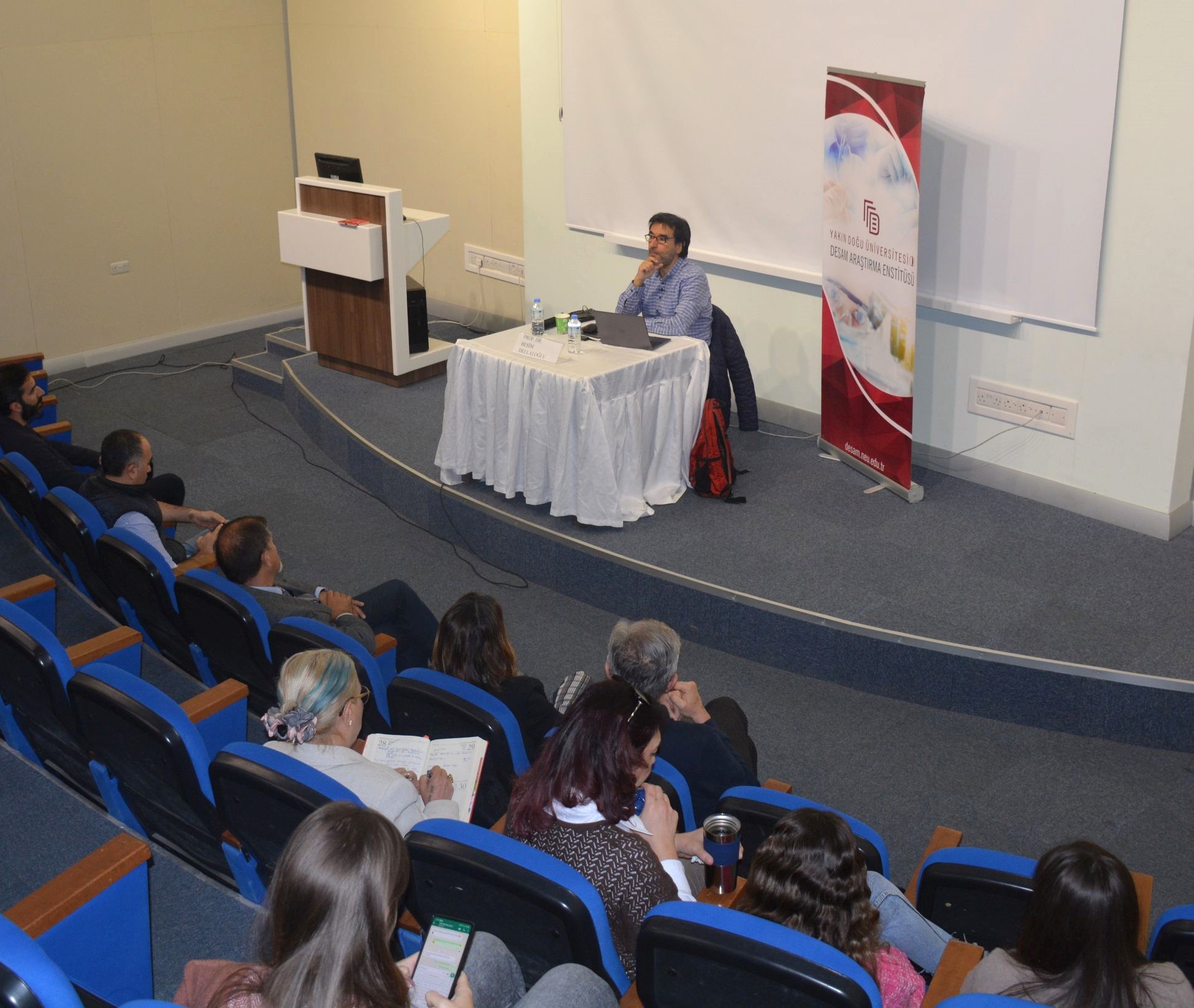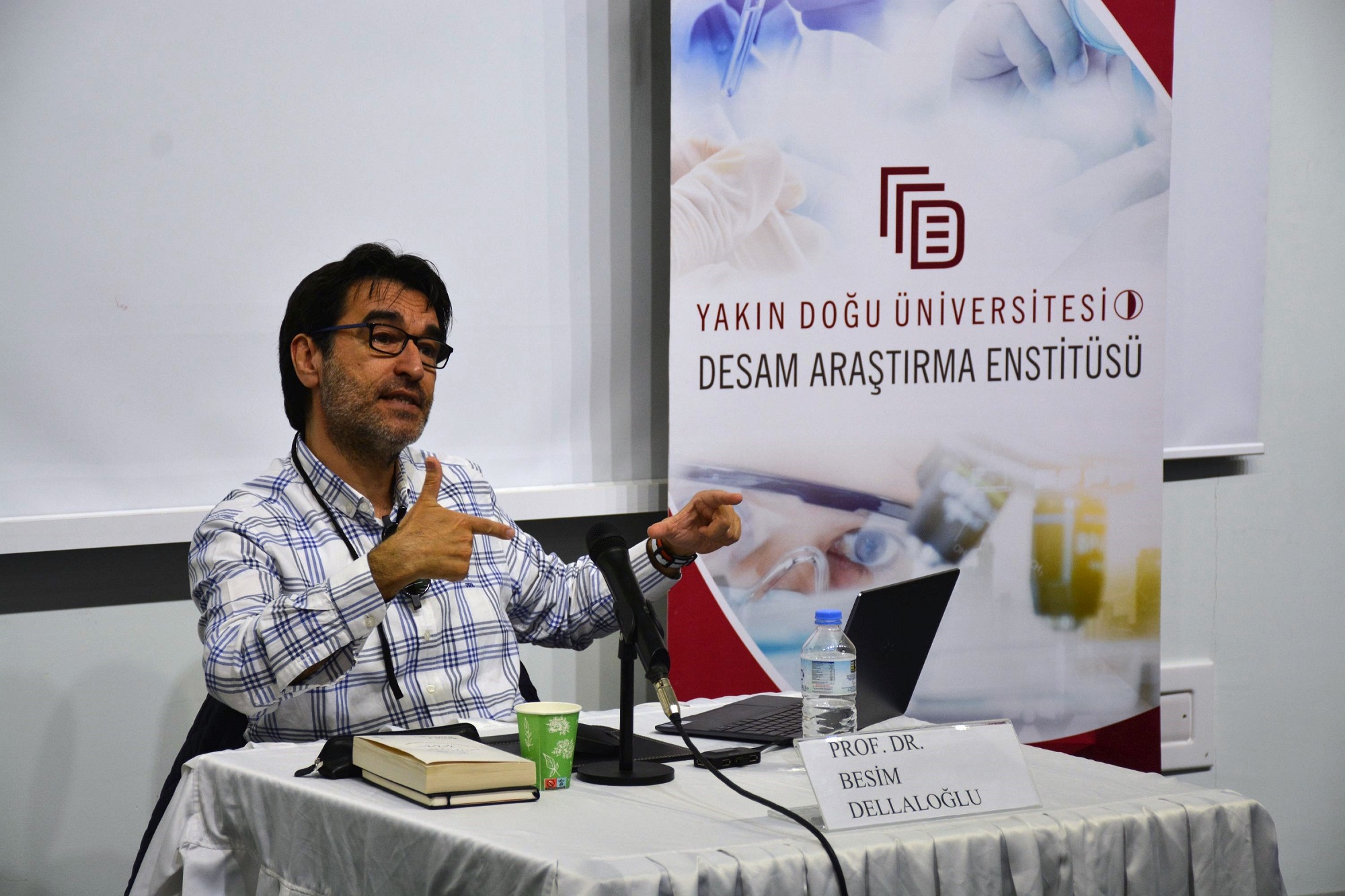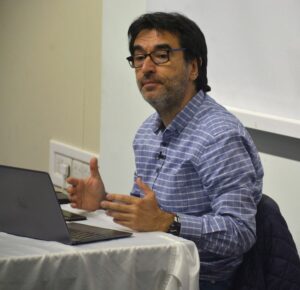
In the first two of the “Post-Doc Seminars” series initiated for researchers who completed their doctorates at Near East University, the subjects “Culture and Civilization” and “Renaissance and Printing Press” were discussed. In the series consisting of 16 seminars to be given by Sociologist and writer Prof. Dr. Besim Dellaloğlu, many topics will be discussed throughout the year with the aim of providing researchers with different perspectives. Within the scope of the seminar series, sociologist and writer Prof. Dr. Besim Dellaloğlu will continue to examine the 30 concepts he included in his book “Poetics and Politics – A Cultural Studies Encyclopedia” with the participants.
In the seminars that Prof. Dr. Besim Dellaloğlu will give next week, “Classical and Canon” on Thursday, April 25; On Friday, April 26, the topics of “Academy, Madrasa and University” will be discussed. The seminars organized by the Near East University DESAM Research Institute and broadcast live on the official YouTube channel of the Near East University is moderated by Near East University Rector Advisor and Near East University DESAM Institute Board Member Prof. Dr. Murat Sayan.

Culture is the most important tool for the construction of society!
In his first seminar titled “Culture and Civilization”, Prof. Besim Dellaloğlu evaluated both concepts etymologically. He stated that the concept of “culture”, which emerged in English and French in the early 1700s, was derived from the words agriculture (cultivation), settled (colony) and worship (cult). Prof. Dr. Dellaloğlu said, “The concept of culture means cultivating people like cultivating the land, raising high-quality people and building one’s own self.” He stated that the concept of culture was first used in Turkish with Ziya Gökalp, with the same etymological root, the word “hars”, which means to cultivate the soil. Stating that one of the most important factors of society building is culture, Prof. Dr. Dellaloğlu emphasized that culture plays an important role in the structuring of society and that acculturation is an important tool in shaping individuals’ behaviors and social structure.
Touching on the relationship between civilization and culture, Prof. Dr. Dellaloğlu said, “We should not forget three concepts when moving from culture to civilization. The first of these is anthropological culture, which includes concepts such as language, religion, tradition and customs that individuals do not have the chance to choose. The second is the “curriculum”, which refers to the cultural nutrition resources of the society and the individual, which has spread all over the world since the Renaissance. The third is the concept of “maarif”, which means compulsory education, which emerged in the 19th century.” Prof. Dr. Dellaloğlu stated that the concept of modern civilization initiated humanism with geographical discoveries and became global within the framework of the universality project.

Sociologist and writer Prof. Dr. Besim Dellaloğlu discussed the subject of “Renaissance and Printing Press” in his second seminar and spoke on the relations between the Renaissance period and the printing press and the important transformations in this period. Stating that the Renaissance, a movement that took place between the 14th and 17th centuries, is considered a turning point in European history, Prof. Dr. Besim Dellaloğlu said that one of the most important inventions of this period was the printing press. Prof. Dr. Besim Dellaloğlu noted that the printing house accelerates the book production process and enables information to reach wider audiences, and stated that this situation supported the intellectual and cultural revival of the Renaissance. Discussing topics such as the invention of the printing press, its historical development to the present day, and the invention of paper and writing, Prof. Dr. Besim Dellaloğlu said, “The invention of the printing press spread very slowly. The number of printing houses increased very slowly. In 40 years, printing houses were opened in only 250 cities. In the early days of its existence, the printing press was a very profitable and risky profession. In the first period when the printing press appeared, the Bible became widespread with the printing of various religious books. With the invention of the printing press, there was a transition from auditory superiority to visual superiority.”